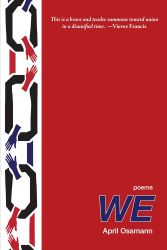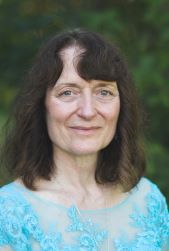




"Turning
the Writing Workshop Model
on Its Head: 'The Ossmann Method'”
For many years
now, I have
been teaching employing a non-traditional workshop model that creates
such a positive
learning experience I’d like to share it. I know from talking
with colleagues
that I’m not alone in my desire for a new creative writing
workshop model.
Throughout my undergraduate and graduate years, I was dissatisfied with
the
traditional creative writing workshop model without knowing exactly
why. It
wasn’t until I’d been a professional editor for a
few years that I identified
what bothered me and developed a method to address it. I first taught
it in
2005, for a Maine Writers & Publishers Alliance weekend
workshop seminar,
and called it “Thinking Like a Poetry Editor: How to Be Your
Own Best Critic.”
Since then it has been suggested to me several times that I call it the
“Ossmann Method,” which suggests to me that I have
something worth sharing.
The traditional
model, wherein
the writer being critiqued sits silently during the process, is a
sometimes
more and sometimes less positive model, depending on the
teacher’s emphasis
(what isn’t working in the writing vs. what is, the level of
tact, etc.). The
dynamic, in my experience as both writer and teacher, is always
a
dependent, disempowering one for the writer who sits silently, being
instructed
as to how to improve. It was in joining my desire to teach writers how
to be
more objective in revising their own work (by learning to think more
like
professional editors) and my desire to create a workshop model
engendering
self-discovery, self-confidence, self-trust and true collegiality, that
I first
imagined a workshop format that effectively reverses both the
traditional model
and its controlling dynamic.
I have taught
using
this model regionally, in Vermont and New England, and nationally.
Its effect has been dramatic for participants (some of whom have asked
for
permission to use the model in their own workshop teaching):
Thank
you for your words
about my poems. I must tell you that Saturday had such an
impact on me,
that I'm ‘seeing’ them and
‘working’ on them as per the critiquing
discussion—word choices, deletions, etc. This
hasn't happened to me
before as the result of any
workshop...I've always thought of this as incubation, but this
after-effect is
purposeful and focused. It is excellent discipline before
hitting the
keyboard— or putting pen to paper. Thank you again!
—Peggy Sapphire
Here’s
how the method works:
I begin
workshops by asking
each participant to describe—instead of giving their
bio—one of their writerly
obsessions: a stylistic technique or poetic or prose device, a favorite
word or
image, theme or subject. Participants enjoy this and it is a good first
step in
learning to observe themselves as writers.
I turn the
traditional
workshop model on its head by asking the author being critiqued to
speak first
and critique her/his own work, noting correlations between the
criticisms s/he
has for other participants’ works (written down in advance of
the workshop) and
her/his own before group discussion of the work begins. This offers a
taste of
what it means to be both writer and editor, a position in which it
becomes easier
to objectively self-assess—and harder to ignore the need; to
spot dull vs.
energetic syntax or dialogue, generic vs. original imagery and other
strengths
and weaknesses previously overlooked. It also empowers the writer in
the
process, and engenders an unusually positive and congenial workshop
environment.
Advance
preparation by the
participants is required for the success of this model, and so far,
students
have found the preparation valuable and instructive. It is in
performing this
work that the student first begins to learn editorial objectivity about
their
writing:
PARTICIPANT
ADVANCE
PREPARATION
Please read,
critique and
annotate other participants’ work before
attempting to critique your
own, and use the notes to inform your critique of yours.
Please prepare
tactful,
written comments to offer verbally to other participants, listing a
minimum of
two strengths and weaknesses for each work. It is as important to learn
your
strengths as it is to learn your weaknesses, otherwise you risk
succeeding only
by accident. After you have finished this, please do the same for your
work.
Please bring
your annotated copies
of participant work to give to the authors.
Some suggested strengths/weaknesses to look for in preparing for workshop (the following list includes both poetic and prose techniques, and many apply to both genres):
Author
Self-critique
Group (and teacher) response
A final word about “the Ossmann Method”: because the writer critiques her/himself first, the sting is taken out of the other’s critiques, and the writers, instead of feeling vulnerable and defensive, authors feel intelligent and competent, learning to see their own work with a new perspective, and to trust that inner voice so often repressed or ignored. I hope that others will feel free to try this workshop model…and watch the magic happen!
If you email me I'll be glad to share my PDF of preparation instructions for the Ossmann Method workshop for your use in teaching; or to teach visiting workshops regionally or nationally.